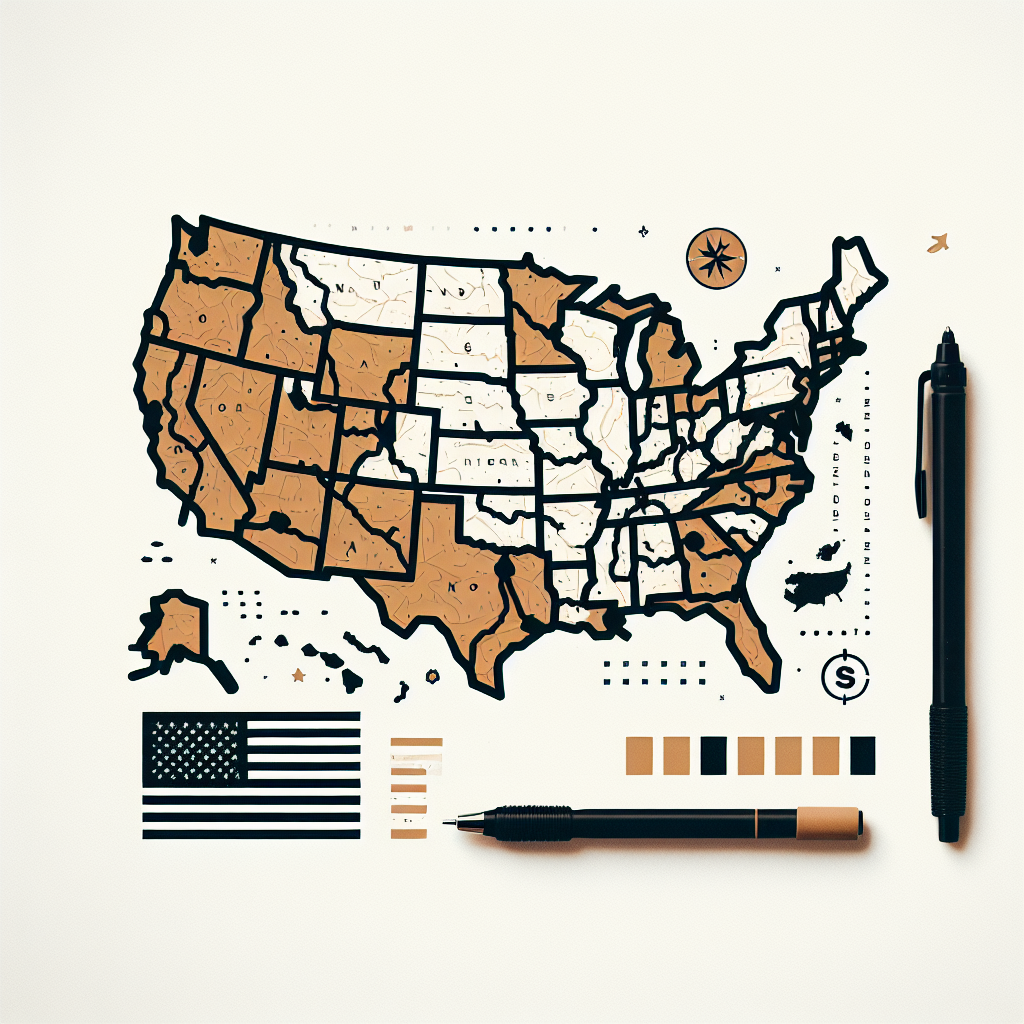Understanding FBAR: A Guide for U.S. Citizens with Assets in Monaco
Introduction
For U.S. citizens mesmerized by the allure of Monaco, handling financial assets in this prestigious locale can be as challenging as it is exciting. With the opulence and luxury of Monte Carlo, it's easy to get swept up in the glamour. However, when it comes to the all-important task of reporting foreign financial accounts, the stakes are high. This is where understanding the Foreign Bank and Financial Accounts Report (FBAR) becomes crucial. I’m here to navigate you through the intricacies of FBAR, drawing on my 12-year tenure in the field, to ensure your assets in Monaco are fully compliant with U.S. regulations.

As an American abroad, or even as a stateside resident with financial interests in Monaco, ensuring compliance with U.S. tax laws is paramount. The duty of revealing foreign bank and financial accounts might seem daunting, but with the right guidance, it can be a smooth and stress-free process. Let me guide you through this maze with clarity and expert insight.

Given my passion for skiing and golf, I understand the importance of strategy and precision—qualities that also define effective FBAR compliance. My aim here is not just to inform but to bring peace of mind to my fellow Americans, ensuring that your financial reporting is as effortless and precise as a well-executed ski slalom.
Key Tips for U.S. Citizens Reporting Assets in Monaco: An FBAR Guide
Diving into the realm of FBAR, the following points offer a roadmap tailored for Americans with connections to Monaco. These Monaco asset disclosure tips for American expats and residents alike shine a light on often overlooked details and strategies for seamless compliance:
- FBAR vs. Tax Return: Understanding that the FBAR is a separate entity from your tax return is the first step toward compliance.
- Filing Deadline and Process: The FBAR filing deadline is April 15, with an automatic extension to October 15. It must be submitted electronically through the FinCEN's BSA E-Filing System.
- Threshold Requirements: The rule is clear - if the aggregate value of your foreign accounts exceeds $10,000 at any point during the calendar year, you must file an FBAR.
- Joint Accounts and Signature Authority: Both joint accounts with non-U.S. persons and accounts where you hold signature authority but no financial interest must be reported.
- All Encompassing Reportable Accounts: From savings and checking accounts to mutual funds and life insurance with cash value - if it's a foreign financial account, it likely needs to be reported.
- Understanding Penalties: The repercussions for non-compliance can be severe, ranging from hefty fines to criminal charges.
- Proactive Compliance: If you've previously overlooked the need to file an FBAR, the IRS offers programs for voluntary disclosure to help mitigate potential penalties.
- Use of Currency Conversion: Report foreign assets in U.S. dollars, using the Treasury's Financial Management Service rates for the end of the applicable year.
- Clarification on Real Estate Directly Owned: Directly owned foreign real estate doesn’t need to be reported on the FBAR. However, foreign accounts used to hold or purchase the property do.
- Seek Expert Advice: The complexity of international tax law and FBAR requirements often necessitates guidance from a tax professional specialized in this arena.
Monaco-Specific Reporting Requirements
U.S. citizens with financial ties to Monaco should be particularly mindful of these country-specific factors:
- Accounts in Monegasque Banks: All types of accounts held in banks headquartered in Monaco are subject to FBAR reporting.
- Investments in Monaco-Based Entities: Investments and ownership stakes in companies located within Monaco, including shares in mutual funds, also need reporting.
- Pension Plans in Monaco: American expatriates participating in Monegasque pension plans must report these interests.
- Insurance Policies: Certain insurance policies with cash surrender values issued by Monaco-based companies are reportable.
- Gambling Winnings: Interestingly, winnings stored in accounts within Monaco’s famous casinos may also meet the FBAR reporting criteria.
- Financial Interests Through Trusts: If you benefit from, or have signature authority over, financial accounts held in trusts based in Monaco, these need to be reported.
- Rental Income Accounts: Accounts that receive or disburse rental income from property in Monaco fall under FBAR guidelines.
- Loans and Accounts Receivable: Loans issued to persons or entities in Monaco and the related accounts are reportable.
Additional Financial Assets and Income
Besides bank accounts, U.S. citizens need to consider these additional reportable assets:
- Capital Gains: Profits from the sale of real estate or other investments in Monaco.
- Dividends and Interest: Generated from Monaco-based investments.
- Rental Income: All rental income from property owned in Monaco.
- Fiduciary Duties: If you’re acting as a trustee or have an equivalent level of control over assets in Monaco.
- Royalties: Income from intellectual property rights held within Monaco.
Compliance and Tax Considerations
Compliance is not just about filling out forms; it’s about understanding the nuanced interplay between U.S. and Monaco tax laws:
- Diligence in Reporting: Accurate and complete disclosure of all applicable accounts and assets is mandatory.
- Understanding Mutual Agreement Procedures (MAP): Familiarity with the U.S.-Monaco tax treaty can offer pathways to resolving potential taxation disputes.
- Claims for Foreign Tax Credits: Opportunities to claim credits for taxes paid to Monaco to avoid double taxation.
- Review of Tax Residency Status: Your status may impact your reporting obligations and tax liability.
- Consideration of Totalization Agreements: These agreements address social security taxation for U.S. citizens working abroad in Monaco.
- Employment Income Reporting: U.S. citizens working in Monaco must report their income on their U.S. tax returns, even though it may also be subject to Monegasque taxes.
- Estate and Gift Tax Implications: The transfer of significant wealth, including gifts to U.S. residents from Monaco, may trigger U.S. tax considerations.
- Investment in Mutual Funds and Similar Vehicles: Investments in PFICs (Passive Foreign Investment Companies) require special reporting on Form 8621.
- Address Changes: Keeping the IRS updated with your current address to ensure all correspondence is received.
- Maintenance of Records: Keep detailed records of all foreign accounts and related tax documents for a minimum of six years.
- Use of Foreign Currency: Report the maximum account value in U.S. dollars, carefully following the IRS’s yearly average exchange rate for conversion.
- Engagement with a Tax Professional: Navigating FBAR and international tax law complexities often requires professional guidance.
Frequently Asked Questions (FAQs)
Can I file my FBAR electronically?
Yes, FBAR filings must be completed electronically through FinCEN's BSA E-Filing System.
Are there any penalties for late FBAR submissions?
Certainly, failure to file an FBAR can result in civil penalties, and in egregious cases, criminal prosecution.
How do I convert foreign currencies for FBAR reporting?
Use the Treasury's Financial Management Service year-end exchange rate for conversion to U.S. dollars.
Do I need to report my home in Monaco if I own it directly?
The FBAR requirements pertain to foreign financial accounts, not directly held real estate. However, if you hold the property through a foreign entity and you have financial interest or signature authority over the entity’s financial accounts, these must be reported.
Is it mandatory to report an account if my name is on it, but the funds belong to someone else?
Yes, if you have signature authority over an account, it must be reported, even if the funds aren’t yours.
What if the aggregate value of my accounts never exceeds $10,000?
If the total at no point in the year exceeds $10,000, you are not required to file an FBAR for that calendar year.
How does the IRS know if I have foreign accounts?
The U.S. has several information-sharing agreements with foreign countries, including Monaco. Additionally, financial institutions are often required to identify accounts held by U.S. persons and report them to the IRS.
Can I use an accountant in Monaco to file my FBAR?
You can use an accountant anywhere, provided they are familiar with U.S. tax law and FBAR requirements. However, the ultimate responsibility for filing correctly and on time rests with you.
What records do I need to keep for FBAR compliance?
Maintain records that detail the name on the account, account numbers, the name and address of the foreign bank, the type of account, and the maximum value during the year.
If I didn’t know about FBAR and failed to file, what should I do?
The IRS has procedures for those who were not aware of the filing requirements. It is best to consult with a tax professional to understand your options and next steps.
Conclusion: Embrace Compliance with Confidence
As daunting as FBAR filing may seem, especially for U.S. citizens with ties to the illustrious principality of Monaco, it's a manageable task with the right guidance. Think of compliance as not just a legal requirement, but as a safeguard for your financial wellbeing. By staying informed and proactive, you transform potential obstacles into stepping stones towards assured compliance and peace of mind. Remember, in the realm of international finance, knowledge is not just power—it's also protection.
